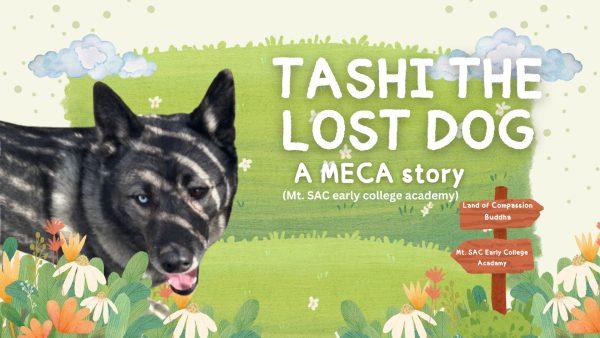What Every High School Student Should Know About Money: Part.1

What Every High School Students Should Know About Money
Part 1 – The Basics
Money this, money that. Invest in this. No, invest in that. Ever hopped on the web and went for a deep dive about money?. You hopped on Wall Street Journal to take a quick look but you don’t even understand what they’re saying. What? That’s where I come in. The point of this article is to help guide you to financial base camp! This is Part 1 of What Every High School Student Should Know About Money.
Golden rule of money: Spend less than you make.
Money comes, money goes
- E.g: If you make, let’s say $100 a day, try to save at least 10% which is $10 or what’s better is to save 20% which is $20.
Money isn’t everything but it sure helps. Money helps you buy time, assets, and freedom.
Try to be debt free – Buying things with credit comes at an additional cost called interest.
- E.g: You buy an iPhone on credit and you only pay the minimum amount, and continue to pay that each month. By the end of the agreement you will be paying close to 2x the original price if not more. The higher the interest rate, the more money you will pay.
The big word: Interest
- Compound interest is either your best friend or your worst enemy. In simple words: To earn interest on the original sum of money plus the interest you earn. It could either benefit you or the other party depending on the situation
Start investing now! The most important thing to invest in is yourself. Learn a skill set that is valuable in the market to your advantage
- E.g: If you have coding skills, it’s valuable, and nowadays you make a really good living with that skill set. ( The power of skills, more in depth in part.2 )
Do you know your credit score? What is a credit score you may ask? It is a score based on your credit behavior, how liable you are to paying back loans etc, based on your credit history. A credit score ranges from 300 – 850.
- E.g: If you are going to go buy a big purchase like a car and the company looks at your credit score and it’s low in the 350s, they look at you as a liability and it is much harder to get that loan and interest rate might be higher for you due to your credit risk.
The best way to have a good credit score is to get a credit card and make some purchases then pay it off diligently every month, so then banks don’t look at you as a liability and can trust you to pay it off.
Want to Invest but don’t know your options? Here’s 5 types of investments you might want to learn about for your future.
Stocks – To invest in stocks is to own a share of a company and to possess part of the earnings and assets.
- E.g: As of today (01/12/23 ) one Apple inc. stock is $133.94 depending on the market condition the stock price can fluctuate up and down.


Reference Number. 5711/1A
(Image by Patek Philippe SA)
Physical Investments – Certain items like watches, shoes, handbags or even precious metals such as gold, silver, platinum etc. are really good options to invest in for yourself for personal satisfaction, utility and possible value appreciation
- E.g: According to Quill and Pad, seven of the Patek Phillip Nautilus Models have had a major increase in the value when the Men’s luxury watch market peaked. The value of those seven Patek Nautilus increased by no less than 400% from January 2018 to February 2022.
Property – To own property and rent it out or sell it to make profit. The earnings you make from renting out your property or the profits you make from selling depends on the location of your property.E.g: Buying an apartment near a university and renting it out should bring you more revenue compared to buying an apartment in a rural area and renting it out, since there is more demand near the university, plus the value of the apartment can appreciate in value over time.
Bonds – In agreement you loan your money to companies or city governments in need and after a certain amount of time, depending on the contract, that company or city will pay you back with the agreed upon interest. It is a much safer investment option compared to stocks and crypto but it is less rewarding. Lower risk, lower reward.
Crypto – Digital Currencies that are not tangible, it all happens online.
- E.g: Dollars, yen, euros, pounds are backed by their respective government, unlike crypto which is not controlled by a central authority

Want to know more? In the next part I am going to go more in depth on skill sets and the power of using skills to your leverage, and also I had the honor to interview our Mt.SAC Early College Academy Economics Teacher; Gabriel Nichols ( Mr. Nichols ) and NorthWestern University Kellogg’s School of Business Finance Professor, Phillip A. Braun to get both their insights on “What Every High School Student Should Know About Money. ”
Till next time.
Your donation will support the student journalists of Mt. SAC Early College Academy. Your contribution will allow us to purchase equipment and cover our annual website hosting costs.







Paraj Ratanajaipan • Feb 12, 2023 at 10:13 pm
Good article, it’s fruitful to help and understand about financial. Keep writing.
Montaya Malaisrie • Feb 9, 2023 at 10:20 am
Great financial literacy article . Simple and precise .
Looking forward to part 2 .
Suchaya • Feb 9, 2023 at 9:21 am
Great work. Key words: Spend less than you make. It will help a lot. Do not dream that you can purchase everything in credit. Borrowing with high interest like current situation will be very difficult for short and long term. Do not forget to save and invest.
❤️❤️❤️❤️❤️